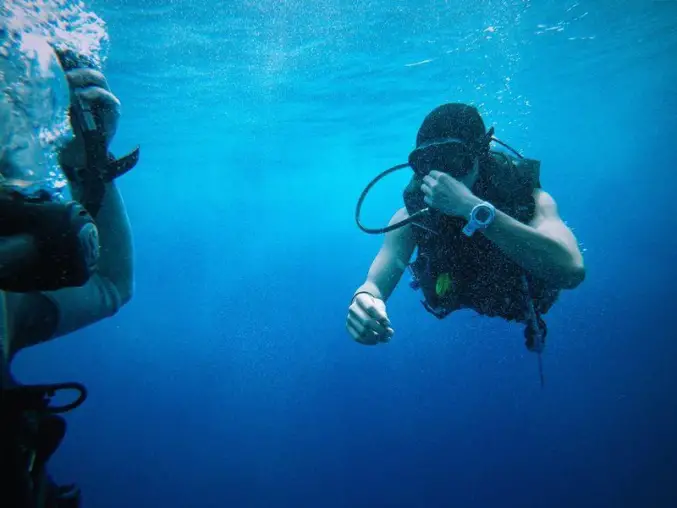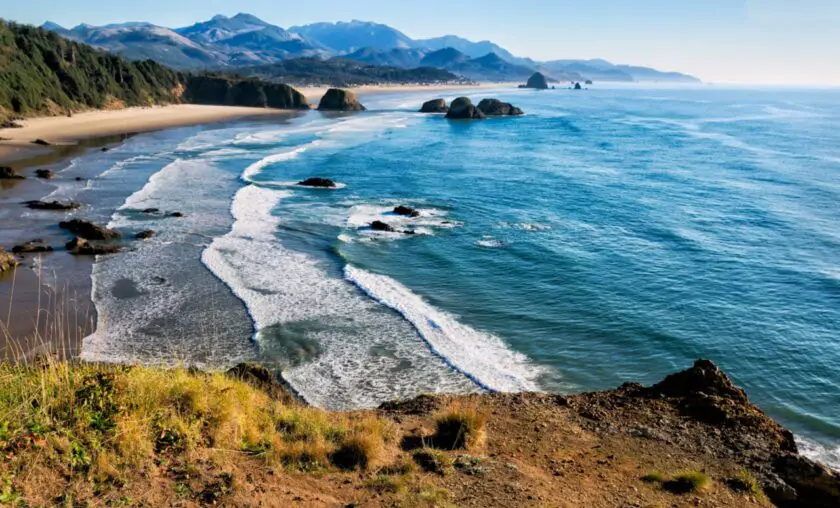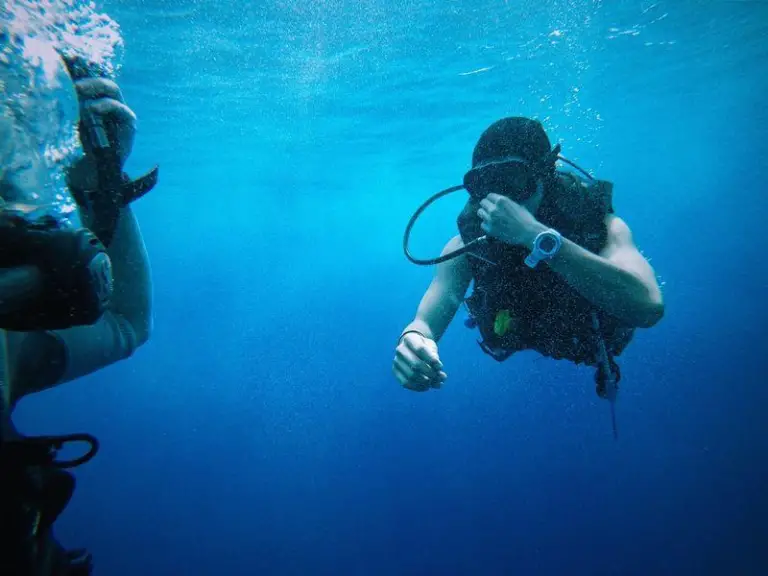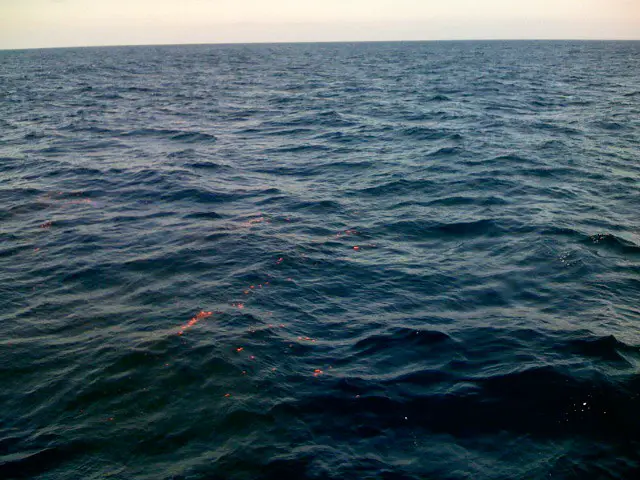
Have you ever pondered whether poop can defy gravity and float in the vast expanse of the ocean? It may seem like an odd question, but understanding this aquatic enigma can be surprisingly enlightening, especially for those contemplating an “aqua dump” during beach excursions.
In this intriguing exploration, we’ll delve into the curious world of floating poop. We’ll uncover the science behind its buoyancy in ocean waters, shedding light on what might make it rise to the surface. Factors such as the composition of feces, gases produced during digestion, and the ocean’s salinity all play a role in whether poop sinks or swims. Prepare to dive deep into these fascinating elements and gain insights into what becomes of it once it embarks on an aquatic adventure.
So, if you’ve ever wondered about the mysterious behavior of poop in the ocean, read on to satisfy your curiosity and discover the surprising science behind this buoyant phenomenon.
What Determines Poop’s Buoyancy?
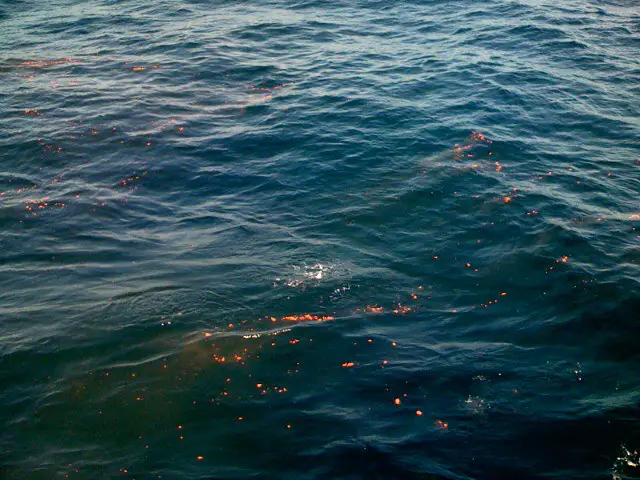
The buoyancy of poop, whether it stays afloat or descends into the abyss, hinges on several critical factors, primarily dictated by its composition. Human fecal matter typically consists of about 75% water and 25% solid material. The solid portion comprises deceased bacteria (30%), undigested food substances like cellulose (30%), fats including cholesterol (10-20%), and inorganic compounds such as calcium phosphate and iron (10-20%).
The primary determinant of poop’s buoyancy is its water content. Less dense than water, fecal matter with a higher water ratio tends to float, while denser variants sink. Additionally, the presence of gas within the feces can significantly affect its buoyancy.
Several factors can influence the buoyancy of your bowel movements, including dietary fiber, gas production resulting from bacterial fermentation, fat content due to digestion issues, and water content influenced by hydration levels.
How the Ocean Affects Poop’s Buoyancy
When poop makes its grand entrance into the ocean, its fate takes a twist influenced by two key factors: salinity and temperature.
Salinity and Its Impact
Salinity refers to the concentration of dissolved salts in seawater, mainly sodium chloride. Higher salinity increases water density, rendering it more conducive for objects, including poop, to stay afloat. Ocean regions exhibit varying salinity levels due to environmental conditions and ocean currents. Consequently, in high-salinity areas (saltwater), poop is more buoyant, while in low-salinity regions (freshwater), it struggles to remain afloat. Over time, oceanic dilution disperses organic matter within the poop, further impacting its buoyancy.
Temperature and Depth Variations
Temperature influences seawater density, with warmer waters being less dense than colder ones. Consequently, poop is more likely to float in warmer waters and sink in colder ones. Depth also plays a role, as increasing pressure at greater ocean depths can compress gas-filled cavities within poop, reducing its buoyancy.
What Happens to Poop in the Ocean
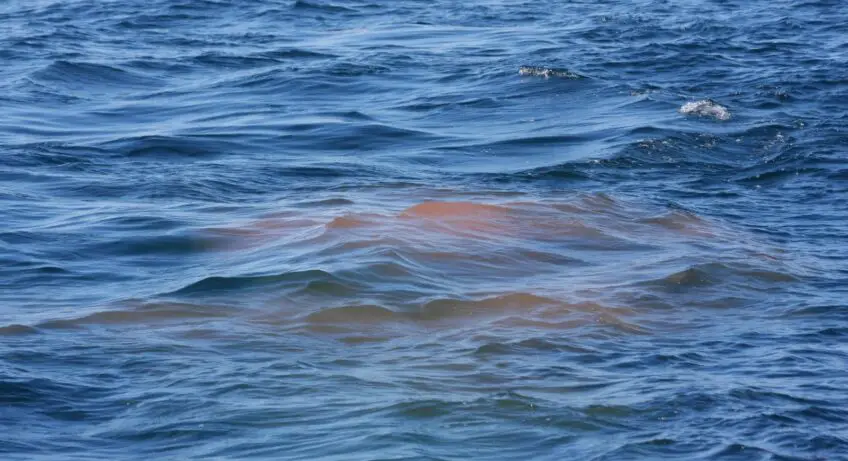
Once poop takes the plunge into the ocean, it embarks on a journey of dispersion and decomposition, guided by the ebb and flow of water and the influence of microorganisms. While marine animal feces often serve as a quick feast for oceanic denizens, human waste may require more time to assimilate.
Marine Life and Fecal Matter
The ocean teems with diverse species relying on the nutrients contained within poop for sustenance. Microscopic organisms, including bacteria and protozoa, initiate the breakdown process, converting feces into a form usable by larger creatures like plankton. This transformative journey, known as the fecal-oral route, plays a vital role in recycling essential nutrients throughout the marine ecosystem, preserving the ocean’s delicate equilibrium.
Pollution and Marine Ecosystems
While poop is a natural component of the oceanic ecosystem, human activities can escalate waste discharge, overwhelming the ocean’s capacity to manage it. Heavy rainfall can trigger urban runoff and sewage system overflows, polluting the ocean with fecal matter and contaminants. This pollution jeopardizes marine life, poses health risks for humans and animals, and damages local habitats.
The Role of Poop in Nutrient Cycling
Poop, an unsung hero in nutrient cycling within aquatic ecosystems, completes its journey by releasing nutrients like nitrogen, phosphorus, and carbon back into the water. These vital nutrients foster the growth of plankton and other marine organisms, serving as a crucial link in the marine food chain. Thus, poop’s role in recycling nutrients ensures the health and stability of marine ecosystems.
Frequently Asked Questions
Can humans poop underwater?
Yes, humans can indeed relieve themselves underwater, as both defecation and breath-holding rely on the diaphragm. However, it’s essential to consider hygiene and environmental impact before choosing to do so in public water bodies.
What happens when you poop in the ocean?
When human waste enters the ocean, it introduces contaminants into the marine ecosystem, potentially causing water pollution and health risks for ocean dwellers. The decomposition process also generates unpleasant odors, as feces break down in water. If your poop happens to float, it could come into contact with others, including yourself.
Do fish consume human waste?
While fish and other marine creatures might ingest small particles of human waste, it is not a typical or desired part of their diet. Consuming human waste can adversely affect their health and potentially lead to the accumulation of toxic substances in their bodies.
What makes feces float or sink in water?
The buoyancy of feces in water is primarily determined by its density and gas content. Feces containing higher amounts of gas, such as methane, tend to float, whereas denser feces with lower gas content usually sink. Various factors, including diet, digestion, and health conditions, can influence feces’ buoyancy in water.
In unraveling the ocean’s dirty truth about floating poop, we’ve journeyed from composition to decomposition, highlighting the vital role this natural process plays in the complex web of marine life. Next time you’re at sea, remember that even the most mundane of matters can impact our planet’s ecosystems.

